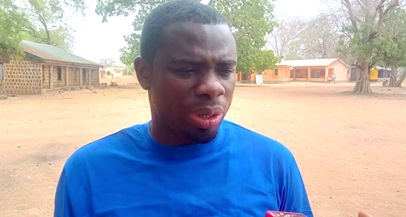
Sustaining water infrastructure key to improving access — WaterAid
A Project Coordinator of WaterAid Ghana, a water, sanitation and hygiene (WASH) focused non-governmental organisation (NGO), Gilbert Asante, has underscored the importance of sustaining water infrastructure in the country.
That, he said, would help increase access to water services, especially in underserved communities.
“Although the provision of water services in the form of boreholes and water systems comes with huge costs, the sustainability of such life-transforming facilities continues to be a challenge globally,” he stressed.
He said it had, therefore, become imperative for users of such facilities, particularly in hard-to-reach areas, to take pragmatic measures to regularly maintain water projects to stand the test of time.
Mr Asante was speaking at an event to commemorate World Water Day in Sandema in the Builsa North Municipality in the Upper East Region last Friday. It was on the theme: “Leveraging water for sexual and reproductive health rights for adolescents”.
It formed part of the Sexual Health and Reproductive Education (SHARE) project being implemented by a consortium led by Right to Play in partnership with the Forum for African Women Educationalists (FAWE) and WaterAid, with technical support from FHI 360.
It is supported by the Government of Canada, funded by Global Affairs Canada and is being implemented in the Bongo and Kassena Nankana West districts, as well as Kassena Nankana and Builsa North municipalities.
He expressed worry that there were several water facilities constructed by WaterAid Ghana and other organisations in many communities, but after a while, such facilities broke down with no effort from stakeholders to repair them.
He stated: “A disturbing development is the fact that community members who are the direct beneficiaries of such water projects are always waiting for the organisations which provided them to come back to fix them.”
Quick repair
Mr Asante noted that most of such projects were donor-driven and that once they were completed and handed over for use, it was expected that the district assemblies and community members would collaborate to repair them regularly.
“It is important for community members to take full ownership of water facilities provided since such projects provided services to them first before any other person,” he indicated, adding: “Therefore, communities should jealously protect such facilities in order to continuously get access to water services”.
He pointed out that about 75 per cent of health facilities nationwide did not have access to water and, therefore, called for efforts to address it; since water was key to infection prevention and control.
A junior high school pupil, Salifu Keziah Awentemi, pleaded for the provision of boreholes in her school to enable adolescent girls to have access to water to clean themselves during their menstrual period.
She also called for the provision of changing rooms in schools to encourage teenage girls to be regular at school while menstruating, stressing: “Some of my colleagues refuse to come to school while menstruating due to lack of water and a changing room.”
The Builsa North Municipal School Health Education Programme (SHEP) Coordinator, Albert Anyaana, said the water crisis was a hindrance to a lot of issues in school which needed to be addressed.
The Assembly member for the Abil-yeri Electoral Area, Malik Adaambiik, said the area did not have enough boreholes, which compelled women and children to walk long distances daily to nearby water facilities to fetch water.
Writer’s email:
